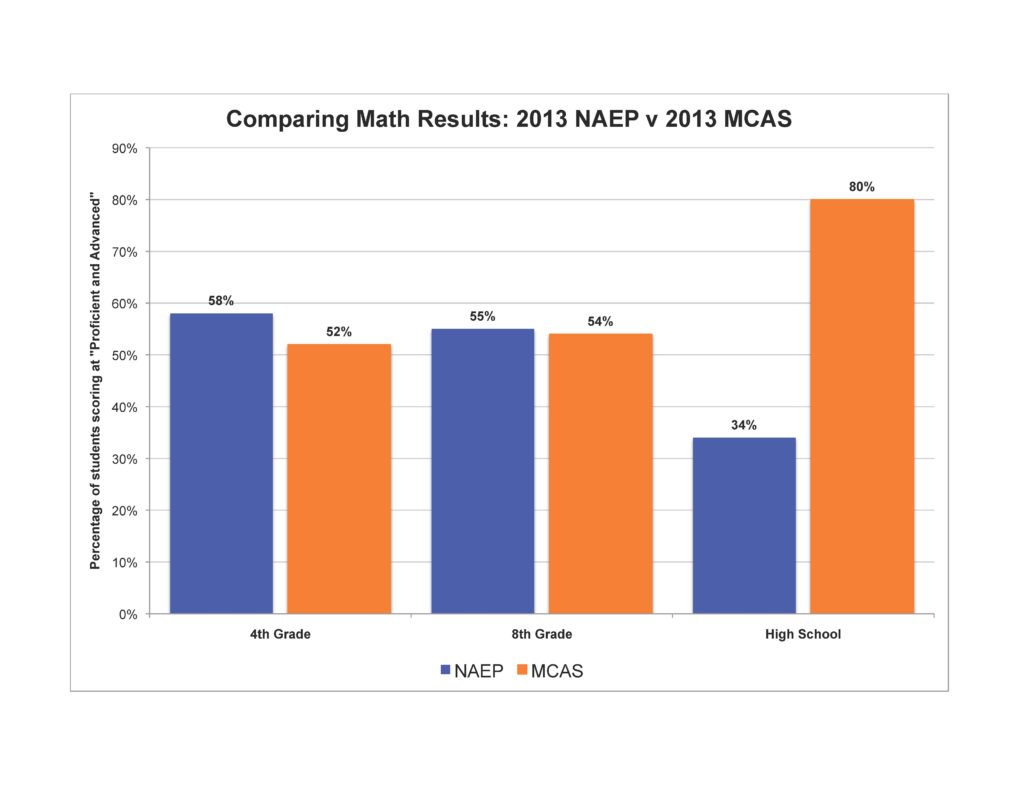Statement on 2015 MCAS Results and Preliminary, Incomplete 2015 PARCC Results
The release of 2015 MCAS results together with a patchwork of preliminary 2015 PARCC testing results provides little new information to help Massachusetts choose between the two tests.
PARCC supporters claim the test’s rigor is evidenced by the fact that fewer students scored in its top two categories compared to those who took MCAS at some grade levels. But the evidence doesn’t support such a claim. First, school districts were simply allowed to choose which test to administer. Districts also had the option of offering PARCC by computer or on paper. The data released yesterday covers only the 59 percent of students taking PARCC who did so by computer.
Though both MCAS and PARCC are based on Common Core English and mathematics standards, the two can’t be compared. MCAS focuses on reading comprehension and understanding underlying concepts. PARCC test items are difficult to navigate and their supposed “higher-order” components are most often just multi-step problems. PARCC’s focus on computerized testing is biased against students with less familiarity with technology or less developed keyboard skills.
Unfortunately, a longitudinal comparison of recent MCAS results to the performance of Massachusetts students on the National Assessment of Educational Progress (NAEP) suggests that the Department of Elementary and Secondary Education has been putting its thumb on the scale, weakening the 10th grade MCAS tests. Massachusetts Commissioner of Elementary and Secondary Education Mitchell Chester also chairs PARCC’s governing board.
Over the years, the success of Massachusetts’ reform effort has been validated by the state’s scores on NAEP. Often called, “The Nation’s Report Card,” it validates the rigor of a state’s assessment system by measuring outcomes against a national yardstick and has been used by groups like Education Trust to demonstrate the strength or weakness of a state’s system. The difference between NAEP scores and state assessment results has been called “the honesty gap.”
What is clear from this graph is that the MCAS is a rigorous (and internationally comparable) assessment through 8th grade but the 10th grade assessment has been diminished as a result of decisions made by state education officials. We urge not only the retention of the MCAS but also a restoration of honesty to the 10th grade test.
Across Massachusetts there have been major technical issues surrounding PARCC’s online administration that have compromised the reliability of results. There has been no estimate of the additional costs districts and municipalities incurred to administer PARCC during the last school year.
In essence, the pilot Massachusetts administration of PARCC during the 2014-15 school year amounted to an opportunity for Pearson, the nation’s largest testing company, to get free feedback on its failing product. There has been little transparency about PARCC which, as a private entity, is under no obligation to release protocols or test questions, as MCAS has always done in accordance with state law. In the past, testing companies paid states and districts to conduct pilot tests.
With every passing day it is clear, as The Boston Globe said several months ago, that PARCC is in a “death spiral.” It began with approximately 26 states and membership is now in single digits. Recently, the Patriot Ledger urged Gov. Baker and legislative leaders to intervene against PARCC.
They are right. Gov. Baker should remove Massachusetts from the PARCC testing consortia.




